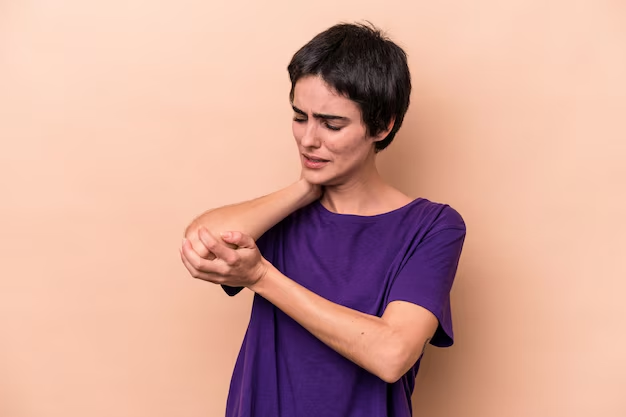Could Your Itchy Skin Be a Sign of Skin Cancer? What You Need to Know
Have you ever experienced an unexplained itch on your skin that just doesn’t seem to go away? While an itch can often be shrugged off as a minor issue, it might be your skin's way of alerting you to something more serious. Skin cancer, although often asymptomatic in its early stages, can sometimes manifest as an itch. In this detailed article, we will delve into whether skin cancer can be itchy, and explore various aspects surrounding this topic to better inform you about your skin health.
Understanding Skin Cancer
To comprehend how skin cancer could be itchy, it’s essential first to understand what skin cancer is. Skin cancer is the most common form of cancer globally, arising from the abnormal growth of skin cells. It commonly occurs on skin exposed to the sun, though it can appear elsewhere.
Types of Skin Cancer
- Basal Cell Carcinoma (BCC): Often appears as a translucent bump but can take other forms.
- Squamous Cell Carcinoma (SCC): Characterized by red, scaly patches.
- Melanoma: The most serious type, often resembling moles; can be black or brown.
Each type can behave differently and present unique symptoms. Recognizing these symptoms early can be key to successful treatment.
Is Skin Cancer Itchy? Exploring the Symptoms
Many skin cancers are initially asymptomatic, meaning they might not cause noticeable symptoms for a while. However, as they evolve, certain types of skin cancer can indeed become itchy.
Common Symptoms of Skin Cancer
- A new growth or sore that does not heal
- Changes in existing moles or spots
- Tenderness or pain in a specific area
- Redness or swelling beyond the border of a mole
Itchiness as a Symptom
Itchiness is not the hallmark sign of skin cancer but can occur. An itch associated with a cancerous lesion often persists, unlike the itch from everyday skin irritations.
Why does it become itchy? The itching might result from the cancerous cells irritating the surrounding skin or nerves. It may not be the most common symptom, but if a spot on your body is both itchy and present for a long time, it could be worth evaluating further.
Differentiating Itchiness: Skin Cancer vs. Other Causes
Not all itches are created equal, and not all are indicators of cancer. Here’s how to discern different itch causes:
Benign Causes of Itching
- Dry skin: Common in dry climates or winter.
- Insect bites: Typically itchy, red, and sometimes swollen.
- Allergic reactions: Resulting from foods, medications, or fabrics.
When to Worry
- Persistent: Constant itch lasting more than a few weeks.
- Localized: Itch focused on a lesion or mole that changes over time.
- No relief: Common home remedies (moisturizers, anti-itch creams) provide no relief.
What Should You Do If You Notice Itchy Skin?
Detecting unusual skin changes can be unsettling. If you notice persistent itchiness associated with a lesion or spot, consider the following steps:
- Monitor: Keep an eye on the area in question for changes in shape, color, or size.
- Document: Take photographs to help track any transformation.
- Consult: Reach out to a healthcare professional if changes continue or escalate.
Practical Ways to Manage Itchy Skin
Non-Cancerous Itch Relief
To relieve general itching, try:
- Moisturizers: Hydrate your skin twice daily.
- Cool compresses: Soothe irritated areas by applying cold packs.
- Oatmeal baths: Natural anti-inflammatory effects can provide relief.
Important Note
If home remedies fail to alleviate itchiness, it’s vital not to ignore the symptoms. Even if it turns out to be a benign issue, seeking medical advice is a beneficial step.
Exploring Skin Cancer Prevention
While it's crucial to be aware of symptoms like itching, focusing on prevention can reduce the risk of skin cancer significantly.
Sun Protection
- Use sunscreen: SPF 30 or higher, broad-spectrum coverage is optimal.
- Protective clothing: Long sleeves, wide-brimmed hats, and UV-blocking sunglasses.
- Shade: Seek shelter during midday when the sun’s rays are strongest.
Regular Skin Checks
- Self-examinations: Monthly checks for new moles or changes.
- Professional evaluations: Yearly dermatologist visits, especially if you have a history of skin cancer or suspect changes.
Conclusion: Trust Your Skin’s Signals
Your skin is the largest organ and acts as a communicator for your body's well-being. Understanding the possibility that an itch could be more than just an irritant might prompt you to take a proactive stance on your health.
Being informed about the symptoms and risks of skin cancer empowers you to act wisely. Whether you deal with a benign itch or something requiring medical intervention, it’s always beneficial to listen to your body.
Quick Takeaways and Next Steps 🌟
- Track Changes: Document any evolving moles or spots.
- Use Protection: Apply sunscreen and wear protective clothing.
- Seek Advice: Contact a healthcare professional for prolonged symptoms.
- Conduct Checks: Regular skin evaluations can catch issues early.
By prioritizing skin health and staying vigilant, you can ensure that you are addressing concerns before they become significant challenges. Your health is in your hands, so stay informed and proactive!

Related Articles
- Are Breast Cancer Lumps Painful
- Are Chills a Sign Of Cancer
- Are Colon Spasms a Sign Of Cancer
- Are Lytic Lesions Always Cancer
- Are Polyps Cancer
- Can a Blood Test Detect Cancer
- Can a Ct Scan Detect Cancer
- Can a Dexa Scan Show Cancer
- Can a Gastric Emptying Scan Show Cancer
- Can a Lung Biopsy Cause Cancer To Spread
